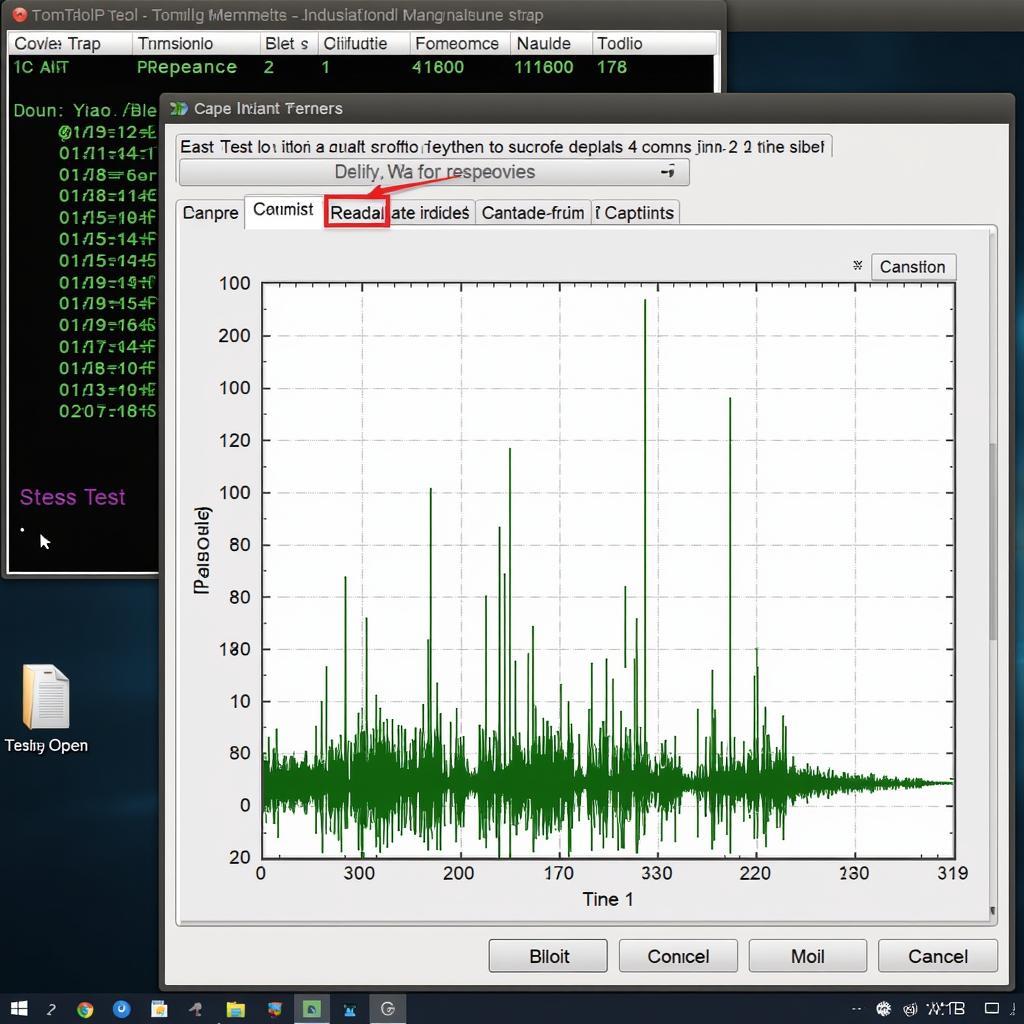In the fast-paced world of technology, encountering issues with your computer system can be frustrating. This is especially true for users with AMD processors, who might find themselves searching for the right “Diagnostic Tool For Amd Processors.” Whether you’re a tech-savvy individual or a workshop owner looking to streamline your troubleshooting process, understanding the importance of these tools and knowing how to utilize them effectively is crucial.
Why Do You Need a Diagnostic Tool for AMD Processors?
Just like a mechanic wouldn’t attempt to fix a car without the right tools, diagnosing and resolving issues within your AMD-powered system requires specialized software. These diagnostic tools provide invaluable insights into your system’s health, performance, and potential bottlenecks. Here’s why they’re indispensable:
- Pinpointing the Problem: Instead of playing a guessing game, these tools pinpoint the root cause of issues, whether it’s related to the processor, memory, or other hardware components.
- Saving Time and Effort: By quickly identifying the problem area, you can avoid unnecessary troubleshooting steps and save valuable time.
- Preventing Future Issues: Regular system analysis with these tools can help detect minor issues before they escalate into major problems, ensuring optimal performance and longevity.
Key Features to Look for in Your Diagnostic Arsenal
Not all diagnostic tools are created equal. When selecting the right one for your needs, consider these essential features:
- Comprehensive System Information: The tool should provide detailed information about your processor, including model, core count, clock speed, temperature, and cache sizes.
- Stress Testing: This feature pushes your processor to its limits, helping identify stability issues and potential overheating problems.
- Benchmarking: Compare your processor’s performance against industry standards and other AMD processors to gauge its overall health and efficiency.
- Error Reporting: A good diagnostic tool will clearly report any errors or warnings detected during the testing process, providing valuable clues for troubleshooting.
Popular AMD Processor Diagnostic Tools
While several diagnostic tools cater to AMD processors, some have gained popularity due to their effectiveness and user-friendliness:
- AMD Ryzen Master: This official tool from AMD offers a suite of options specifically designed for Ryzen processors. It allows for overclocking, monitoring system performance, and even customizing the behavior of individual cores.
- CPU-Z: A widely recognized tool in the tech community, CPU-Z provides a wealth of information about your processor, memory, motherboard, and other system components. It’s a valuable resource for both basic and advanced users.
- Prime95: Known for its rigorous stress testing capabilities, Prime95 can help identify stability issues with your processor and memory.
 Stress Testing an AMD CPU
Stress Testing an AMD CPU
Common Issues and How Diagnostic Tools Can Help
From slow performance to unexpected shutdowns, diagnostic tools can help pinpoint the root cause of various AMD processor-related issues:
- Overheating: If your system frequently overheats, the diagnostic tool can monitor your processor’s temperature under different loads, helping determine if the cooling solution is adequate.
- Performance Bottlenecks: Diagnostic tools can analyze CPU usage and identify any processes or applications that might be putting excessive strain on your processor, leading to performance degradation.
- Driver Issues: Sometimes, outdated or incompatible drivers can cause conflicts and affect system performance. Diagnostic tools can help pinpoint these issues.
Intel Processor Diagnostic Tool: A Noteworthy Alternative
While our focus is on AMD processors, it’s worth mentioning a powerful diagnostic tool for Intel users experiencing issues. The Intel Processor Diagnostic Tool offers a comprehensive suite of tests to diagnose and troubleshoot various problems.
Beyond Software: Hardware Diagnostic Tools
While software-based tools are essential, sometimes hardware issues can manifest as processor-related problems. In such cases, hardware diagnostic tools like multimeters and POST (Power On Self Test) cards can be invaluable for testing individual components and identifying the source of the issue.
 Hardware Diagnostics for PCs
Hardware Diagnostics for PCs
Seeking Expert Assistance
“Even with the best diagnostic tools, resolving complex computer issues can be challenging,” says Michael Chen, a Senior Systems Engineer at a leading technology firm. “Don’t hesitate to seek professional help from qualified technicians when needed.”
If you’ve exhausted your troubleshooting options or are uncomfortable delving into technical details, it’s wise to consult with experienced professionals who can diagnose and resolve the issue safely and efficiently.
Conclusion
Diagnostic tools for AMD processors are essential for maintaining your system’s health, performance, and longevity. By understanding the key features, popular options, and how to utilize them effectively, you can troubleshoot problems, optimize performance, and ensure a smooth computing experience.
For any further assistance or expert guidance on diagnosing and resolving computer issues, feel free to contact ScanToolUS at +1 (641) 206-8880. We’re located at 1615 S Laramie Ave, Cicero, IL 60804, USA. Our team of skilled technicians is here to help you get back on track.



Pingback: AMD Ryzen Diagnostic Tool: A Comprehensive Guide for Automotive Troubleshooting - Car Scan Tool